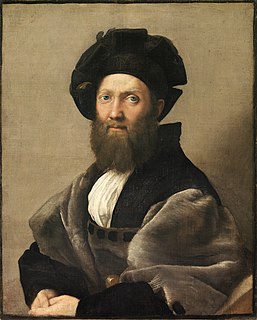A Quote by Catharine Sedgwick
Talent and worth are the only eternal grounds of distinction. To these the Almighty has affixed His everlasting patent of nobility. Knowledge and goodness,--these make degrees in heaven, and they must be the graduating scale of a true democracy.
Related Quotes
What will it cost [a person] to be a true Christian? It will cost him his self-righteousn ess. He must cast away all pride and high thoughts, and conceit of his own goodness. He must be content to go to heaven as a poor sinner, saved only by free grace, and owing all to the merit and righteousness of another.
Pascal makes no attempt in this most famous argument to show that his Roman Catholicism is true or probably true. The reasons which he suggests for making the recommended bet on his particular faith are reasons in the sense of motives rather than reasons in the sense of grounds. Conceding, if only for the sake of the present argument, that we can have no knowledge here, Pascal tries to justify as prudent a policy of systematic self-persuasion, rather than to provide grounds for thinking that the beliefs recommended are actually true.
We cannot ultimately specify the grounds (either metaphysical or logical or empirical) upon which we hold that our knowledge is true. Being committed to such grounds, dwelling in them, we are projecting ourselves to what we believe to be true from or through these grounds. We cannot therefore see what they are. We cannot look at them because we are looking with them.
Old age is the fourth stage. By the time one reaches this stage of his journey, he must have discovered that the joys available in this world are trivial and fleeting. He must be equipped with the higher knowledge of spiritual joy, available through delving into the inner spring of Bliss. Through his experiences, his heart must have softened and be filled with compassion. He has to be engrossed in promoting the progress of all beings without distinction. And he must be eager to share with others the knowledge he has accumulated and the benefit of his experiences.
Now I wonder what our knowledge has in common with God's knowledge according to those who treat God's knowledge... Is there anything else common to both besides the mere name? ...there is an essential distinction between His knowledge and ours, like the distinction between the substance of the heavens and that of the earth.
The starting-point and chief principle of every science, and hence of theology also, is not only methodical doubt, but positive doubt. One can believe only what one has perceived to be true from reasonable grounds, and consequently one must have the courage to continue doubting until one has found reliable grounds to satisfy the reason.
If you believe that there’s a heaven and hell and people could be going to hell—or not getting eternal life or whatever—and you think that, well, it’s not really worth telling them this because it would make it socially awkward. . . . How much do you have to hate somebody to not proselytize? How much do you have to hate somebody to believe that everlasting life is possible and not tell them that?
Degrees of ability vary, but the basic principle remains the same: the degree of a man's independence, initiative and personal love for his work determines his talent as a worker and his worth as a man. Independence is the only gauge of human virtue and value. What a man is and makes of himself; not what he has or hasn't done for others. There is no substitute for personal dignity. There is no standard of personal dignity except independence.
The first thing the reasonable man must do is to be content with a very little knowledge and a very great deal of ignorance. The second thing he must do is to make the utmost possible use of the knowledge he has and not waste his energy crying for the moon. The third thing he must do is try and see clearly where his knowledge ends and his ignorance begins.







































